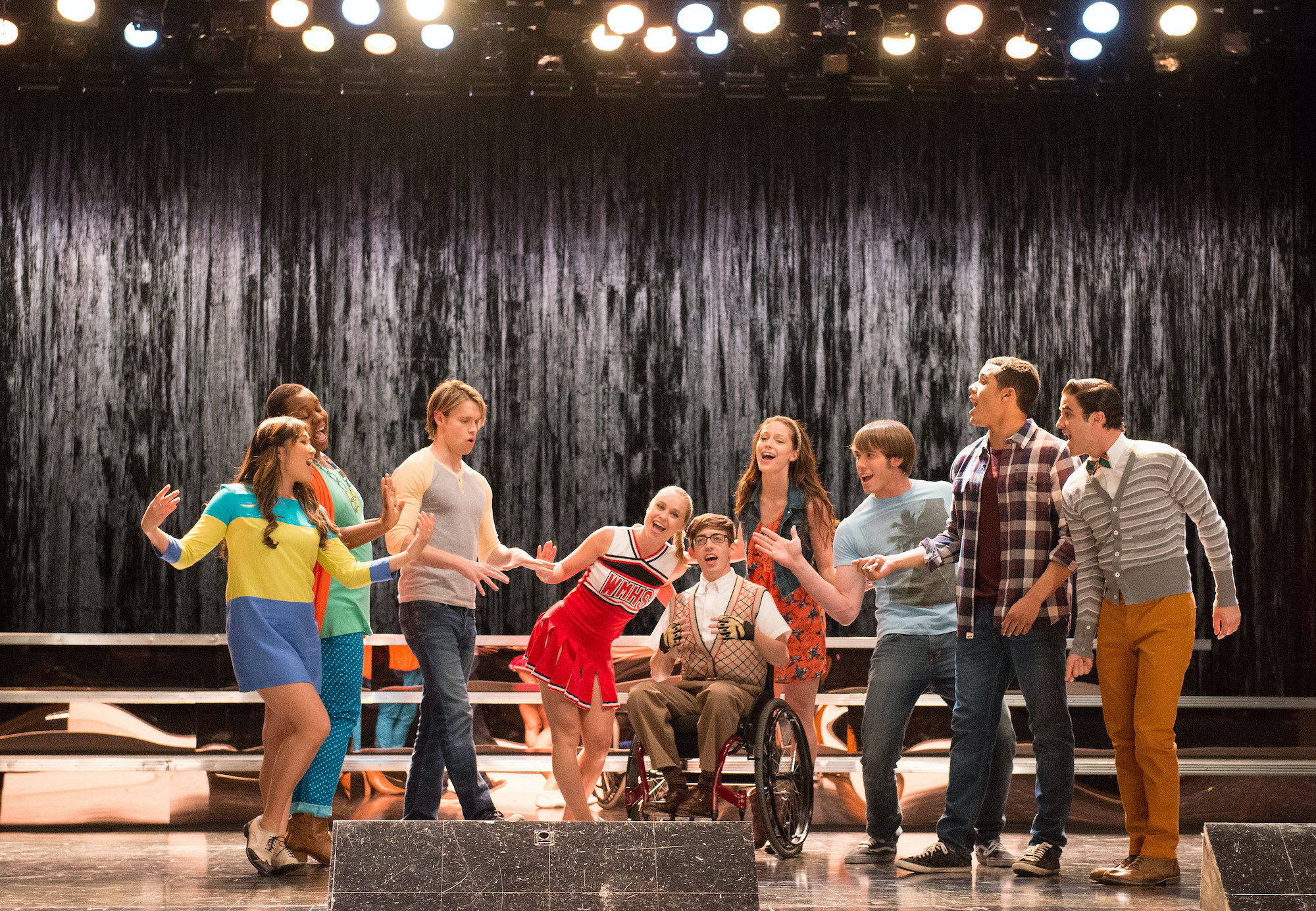Glee’: The Albums Alone Made the Record Label an Estimated $100 Million
Glee premiered on Fox in 2009 and became one of the earliest examples of scripted TV shows using real-life hits to bring in an audience and make everyone money. While modern shows like Riverdale try to capitalize on similar success, nobody did it like Glee. Their 50-50 deals with record companies meant that money floated in from all sides, and people behind the series spoke about its impact in 2011.

What was ‘Glee’?
Glee took place in a world where song and dance numbers were always just a beat away. No, it wasn’t a musical with characters breaking into song out in the wild, but it blurred the line between that standard format, concert films, and television. With a cast featuring Jane Lynch, Matthew Morrison, Lea Michele, and the late Naya Rivera and Cory Monteith, the show was an overnight success.
According to Fandom, the series released 16 soundtrack albums, six compilations, several EPs, and hundreds of singles. From Christmas hits to jukebox favorites, the series scratched an itch at the same time that iTunes was recreating the way that fans could purchase music. The results were legendary.
Ryan Murphy’s vision
Ryan Murphy made his name on a different type of series. Nip-Tuck wasn’t about inclusive theater programs nor a group of talented youngsters. It was about a plastic surgeon who was as good at self-destruction as he was at his career. When Glee came out, however, fans saw the genius behind the still-dominant Murphy’s success. Morrison spoke about this brilliance with The Hollywood Reporter in 2011. Then-Fox chairman Gary Newman said about the show:
“Glee is a big commitment at Fox, and Ryan is our most important creator … He combines incredible intelligence with a commercial instinct and truly impeccable taste. Frequently those things don’t go together with that well, but he really is an unusual combination of talents.”
Creators saw that bottom line as an unprecedented look at the power of Glee. While the series didn’t break any longevity records, its six years on the air made many of its stars household names not only for their acting but their voices. As such, the series tapped into a scripted television landscape that has always dominated and added a dimension of American Idol-style cross-media promotion.
The ‘Glee’ effect
Featuring pop songs does not come cheap. As such, pop superstars like Britney Spears and Lady Gaga saw their meteoric hits rise even further after they were featured on the show. In the case of the latter, the Glee sales often rivaled the sales of the actual hits.
Thanks to a 50-50 split in revenue, Columbia Chairman Rob Stringer broke down why the $100 million arrangement was so important to the Hollywood Reporter. “It’s a very healthy addition to our bottom line. I don’t know any artist that can do 9 million albums in 15 months. That’s basically Lady Gaga territory,” the music mogul said.
The series didn’t get every artist that they liked, as Billboard noted in 2011 after a settled rift with Kings of Leon. However, other artists saw the boom that other artists got, and, in some cases, the show didn’t have to reach out to get their biggest hits. From Journey classics to modern Rihanna songs, Glee made theater cool again.
While this was great for audiences and cast members, it was best for the people who made money off of its success. After all, Glee wasn’t the first or last show to hinge on the hits its characters sang, but it was the first to do so as lucratively and successfully as it did for six seasons. Years removed from its final episode, and Glee still holds a special place in many of its fans’ hearts, and the effects it had on the industry at large help paint exactly why this is.


